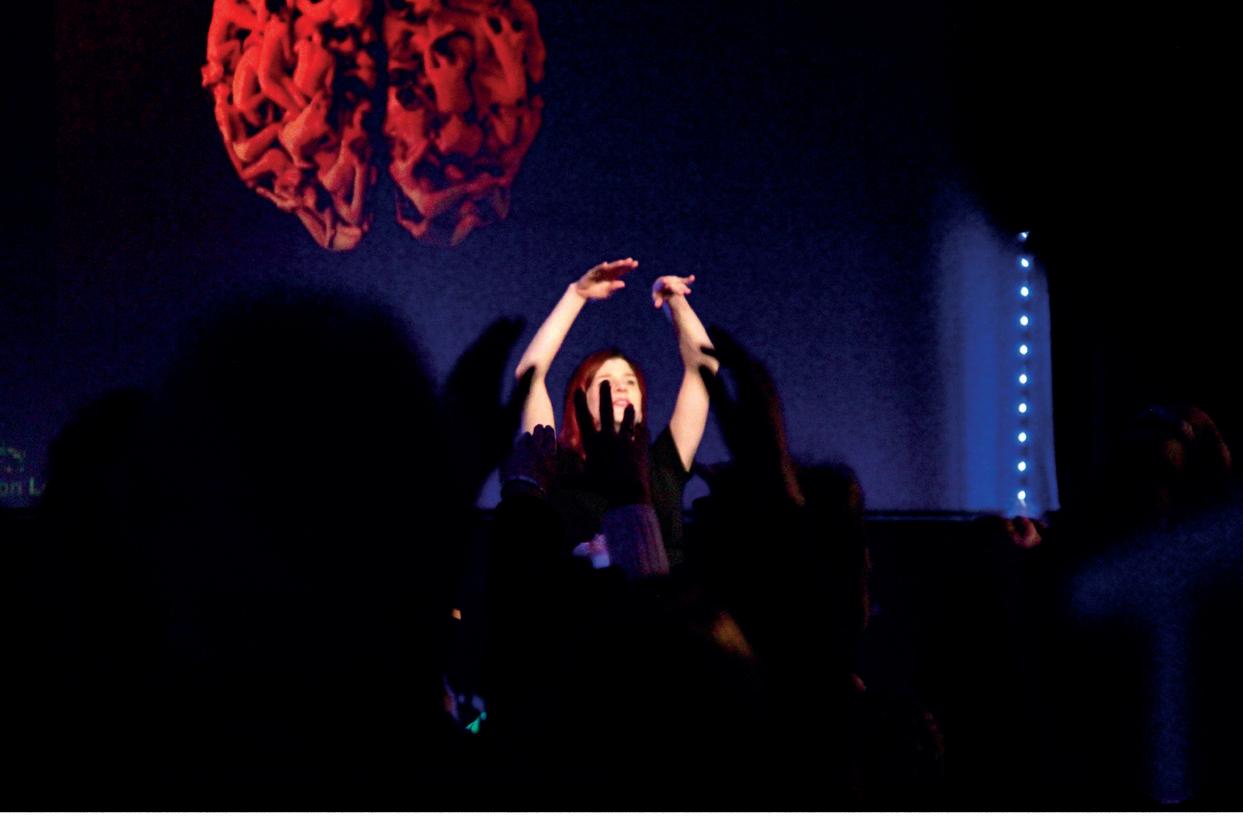
3 minute read
Science Lectures
Science Lectures 2018/2019
MARK PAGEL
In September, Professor Mark Pagel from the University of Reading visited St Peter’s to deliver a public lecture from the field of Biology. His talk was called ‘Darwin Would Approve - The Evolution of Human Language’. Professor Pagel is a world renowned scientist and communicator, having delivered many lectures across the world including a TED talk. Around 300 came along for the talk and with a really broad mix of scientists, linguists and those with a general interest in Mark’s work.
Professor Pagel explained how scientists use a wide range of clues to estimate human language to have developed 150,000 to 200,000 years ago. He drew parallels between the Darwinian evolution of species and the evolution of different words, in the way that they compete for existence.
This was a really fascinating talk which used the lens of Biology to explore language and the potential fate of human communication in a truly enthralling and entertaining way.
DAVID EDWARDS
Dr David Edwards from the Royal Geographical Society visited St Peter’s in November. He spent the day at school talking to Sixth Form Geographers about his adventures in Antarctica and Montserrat.
For his evening public lecture, David concentrated on his first trip to Montserrat. He told the story of how, during his expedition to study wildlife living on the island in the Carribean, a dramatic natural event occurred. On 18th July 1995 the island’s volcano erupted and David was in the jungle just a couple of kilometres away. Although fearing for his life, David was equipped with a camera and started documenting the eruption and then the events that further unfolded. This amazing footage was shared with the audience in this highly engaging tale of scientific adventure.
EMILY CROSS
Professor Emily Cross joined us in January from the University of Glasgow, presenting her talk entitled ‘Getting into the Neural Groove’. Emily is a professor of Social Robotics at the institute of Neuroscience and Psychology, her team concentrates on the development and design of robots which interact socially with humans. Emily’s team has been focusing on the psychology behind highly skilled motor functions, such as dance, music, gymnastics, contortion, and acrobatics.
Her talk was truly interactive and this was the first ever public lecture where the audience participated in a dance routine. Professor Cross explored what the latest neuroscience research reveals about what’s going on inside our heads as we watch dancers.

This talk attracted lots of people with a keen interest in dance as well as science. It was really interesting for all attending, to gain insights into why, perhaps, certain dance moves are more pleasing than others to watch and to learn. These ideas could certainly be applied to a broad range of other disciplines including sport.
Emily’s talk was really warmly received on a cold winter’s evening and a huge thank you to visiting us at St Peter’s.
ALEX BELLOS
Alex Bellos visited St Peter’s in June to give a lecture as part of the York Festival of Ideas on the subject of the ‘World’s Favourite Number’. Alex is an author and broadcaster who specialises in mathematics. He wrote the popular maths books Alex’s Adventures in Numberland and Alex Through the Looking-Glass, which were both bestsellers in the UK. He writes a maths blog and a puzzle blog for the Guardian Online and frequently speaks on maths at conferences, festivals, in schools and in companies.
This was a truly fascinating, entertaining and interactive talk. The audience was challenged to solve puzzles themselves. His talk brought together the subjects of numbers, psychology and the history of science, looking at patterns behind our emotional response to numbers.
Alex was very pleased to visit the school not least because the 9th Headmaster of St Peter’s – Alcuin – is said to be the father of modern puzzles and one of Alex’ heroes. Alcuin is thought to be the first to record the puzzle of the fox, the chicken and the bag of grain.
Mr Andy Parr, Head of Science Outreach











